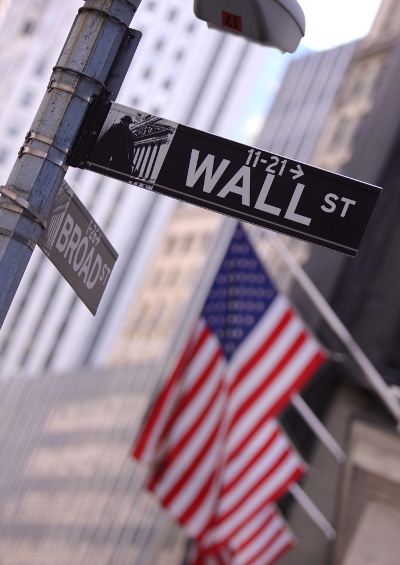Merkel’s European Legacy
In the twilight of her career, will the German chancellor manage to produce a grand European compromise between the Northern “frugals” and the Southerners?
May 19, 2020
Timing counts for a lot in politics. For her part, Germany’s Angela Merkel continues to have her fair share of good luck and often making the most of it.
Catapulted into party leadership after Helmut Kohl’s presumable heirs — all men — largely self-destructed one after another, she has run a tight ship in German politics ever since she became the country’s head of government in 2005.
A determined, but lucky woman
Always determined to fend off the rise of potential competitors, she benefited greatly from assuming her top post after her predecessor had fundamentally reformed the German economy.
While Gerhard Schröder paid the ultimate political price for his courage, narrowly losing the election, Mrs. Merkel was pretty much able to coast with regard to economic policy.
Her term in office coincided with unprecedented German political and economic influence in Europe, with the euro crisis elevating her country to being the continent’s financial anchor.
Yet more luck
True. After announcing that she will not run for another term, Angela Merkel did risk being a lame duck chancellor ahead of the next federal elections that are to be held no later than September 2021.
However, when the COVID 19 pandemic froze the CDU’s search for her successor, her approval ratings have risen to historically high levels.
Her professional training as a circumspect scientist paid off big during this public health crisis.
This actually is where things become interesting for other European nations. Angela Merkel’s high level of public support offers her ample political capital in the arena of domestic politics.
A fortuitous event?
In that context, it must be considered very fortuitous that it is Angela Merkel’s Germany that will take over the rotating EU presidency in the second half of 2020.
Let’s not forget that other EU nations put high hopes into Germany steering a courageous course for better European integration.
For Merkel personally, this is a final opportunity to secure a true European legacy for herself. If longtime Merkel insiders are to be believed, she did not want to leave the political stage before the European project is safe. So the question becomes: Will she seize the post-corona opportunity?
Standing tall with Macron
To be sure, the announcement by Angela Merkel and Emmanuel Macron of a corona-related 500 billion euro recovery fund amounts to Merkel committing Germany to do “way more.” Moreover, the CDU/CSU’s endorsement suggests she is carrying her party with her.
The new precedent for EU debt is obviously huge. Not only is the amount very large, of which Germany will be accounting for 25-30%. What really makes it a big deal is that Germany will receive far less back than it puts in.
This is indeed a first step to a genuine European legacy for her — if she pulls it off as EU president and gets all the other EU members to sign up by the end of 2020. The indications are that she will.
Not the time…
While the EU has so far weathered the shock from the pandemic considerably better than either the United Kingdom or the United States, the risk remains that the economic recovery will be very uneven across the region.
As a result, the economic divergence between the North and the South that began after the 2008-09 financial crisis may well become too unsustainable economically and politically to ensure the EU’s cohesion.
Germany’s pivotal role as an honest broker
This is not a risk the ECB can alone mitigate. An additional common political and fiscal response to secure a strong Europe-wide recovery is required.
What many ideas and suggestions are on the table, everybody’s knows that Germany’s and Angela Merkel’s position will again be decisive.
Fortunately for Europe, it is difficult to imagine a German chancellor in a stronger political position at home than Angela Merkel finds herself in today.
Angela Merkel now has an 83% approval rating as chancellor, with her party nearing 40% public support. Both numbers were unimaginable even a short while ago.
Only a few months ago, her party suffered a huge defeat in Hamburg’s state elections and, at the federal level, the Green Party almost rivaled her CDU in the polls.
For a political leader heading for retirement at the next election, all of this translates into an extraordinary reservoir of available political capital to broker an important solution.
Germans must do more – way more
Already Merkel has announced to the Bundestag that Germany will be making “considerably higher” contributions to the next EU budget. She thereby clearly signals her intent to put more German taxpayer money towards the EU’s pressing political and economic recovery needs.
It is difficult to see how, due to the current pandemic, she would be vulnerable to a backbench revolt among her own party MPs for offering more money to Europe.
Provided, of course, that the German government succeeds in blocking longstanding red lines in mutualization of existing sovereign debts or new joint and several bond issuance.
As it happens, that fencing-in task has already largely been accomplished at the previous EU Council via Italy’s support for a “recovery fund,” and France’s abandonment of its fleeting embrace of a Eurobond that is supported only by a subset of euro area members.
Leading by example
The prospect of having a German chancellor soon presiding over the EU and demonstrating to her EU Council peers to be capable to deliver a sizable additional financial boost to the EU’s next multi-year budget and pandemic recovery plan is a leader capable of shaping what Europe does next.
Angela Merkel has already discussed the need for an investment-oriented EU “Konjunkturprogramm” (spending program).
And she has helpfully highlighted the importance of the Green Deal and digital infrastructure – thus allowing her to make good at long last at promises she has long made and either factually abandoned or never really made good on.
Her party should love it
The domestic political benefits for the CDU, having pushed the Greens below 20% in the polls, of securing a potent European-level climate friendly investment push starting in 2021 are self-evident.
Overcoming Germany’s well-known deficiencies in its high-speed mobile internet infrastructure by EU funds directed to this purpose would definitely help them pushing this crucial agenda item down the order of potential electoral strife points.
What’s not to love?
Reaping this impressive range of political benefits just by doing what is the responsible thing to do for Europe seems like magic.
By pushing through an adequately sized jointly funded EU investment program to boost the economic recovery, the current German chancellor could actually mimic her predecessor.
Gerhard Schröder turned in a great and courageous performance in the late stages of his second term in office. Merkel would do that not on the German, but the European stage.
Conclusion
To this end, the European Commission could be granted a temporary and earmarked increase in its budget. Based on this supplementary capital and relying additional member state fiscal guarantees, the Berlaymont, in an ESM-like financial construction, could issue perhaps €1 trillion in new debt over the next two to three years.
These joint resources would fuel the economic recovery across Europe and in the process secure Angela Merkel’s European legacy.
Takeaways
Timing counts for a lot in politics. Germany’s Angela Merkel continues to have her fair share of good luck -- and making the most of it.
After announcing that she will not run for another term, Merkel risked being a lame duck. But the COVID 19 pandemic has once again supercharged her approval ratings.
Merkel’s high level of public support gives her ample domestic political capital to pursue a constructive and generous solution for weaker EU countries.
It is fortuitous that Merkel’s Germany will take over the rotating EU presidency on July 1. There are hopes it will steer a courageous course for better European integration.
Pushing through an adequately sized, jointly funded EU investment program to boost the economic recovery could secure Merkel’s European legacy.

